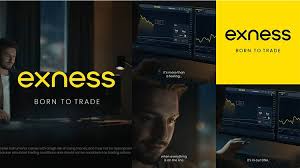
When trading through exness spread Exness broker, understanding the concept of spread is crucial for optimizing your trading costs and strategies. Spread refers to the difference between the bid price and the ask price of a currency pair or other trading instrument. It is essentially a cost incurred by traders every time they enter a position, making it essential to comprehend how it works, the factors that influence it, and how to manage it effectively.
What is Spread?
Spread is a fundamental concept in financial markets, particularly in forex trading. It represents the transaction cost associated with executing a trade. When you buy a currency pair, you do so at the ask price, whereas selling occurs at the bid price. The difference between these two prices is the spread.
In simpler terms, if the bid price of a currency pair is 1.3000 and the ask price is 1.3002, the spread is 2 pips. This spread is what you need to be aware of when trading with Exness or any other broker, as it can influence the profitability of your trades.
The Types of Spread
There are primarily two types of spreads that traders encounter:
- Fixed Spread: This type of spread remains constant regardless of market conditions. For example, if Exness offers a fixed spread of 1 pip on a particular currency pair, it will remain at that value even in volatile markets.
- Variable Spread: Also known as floating spreads, these can change depending on market conditions. During high volatility periods, the spread may widen, which can lead to higher trading costs for traders.
Importance of Understanding Spread
When you trade through Exness, the spread is one of the critical factors that affect your overall trading costs. A lower spread typically means that the costs associated with opening and closing trades are minimized. Conversely, a high spread can significantly cut into your profits, especially in active trading strategies where positions are opened and closed frequently.

Moreover, understanding the spread can also assist traders in selecting the right instruments to trade. Pairs with lower spreads are often more cost-effective for trading and can enhance the potential for profit.
Factors Influencing Spread
Several factors influence the spread offered by Exness and other brokers:
- Market Liquidity: The more liquid a market is, the tighter the spread tends to be. Major currency pairs, such as EUR/USD, often have lower spreads compared to exotic pairs due to their high liquidity.
- Time of Day: Spread can change throughout the day depending on market activity. Spreads tend to widen during off-peak hours when fewer traders are in the market.
- News Events: Economic news releases and data can cause spikes in volatility, leading to increased spreads. It is essential for traders to be aware of economic calendars and plan their trades accordingly.
- Broker Policies: Different brokers, including Exness, may have varying methods for calculating spreads based on their pricing models and policies.
How to Minimize Spread Costs
While you can’t eliminate the spread completely, you can take steps to minimize its impact on your trading profitability:
- Choose the Right Time to Trade: As mentioned earlier, trading during peak market hours usually offers lower spreads. Identify the best trading times for the instruments you are interested in.
- Use Limit Orders: A limit order allows traders to specify a price at which they wish to buy or sell. This can help avoid wider spreads often seen with market orders during volatile periods.
- Select Low Spread Instruments: Focus on trading currency pairs or assets that typically have lower spreads. Doing thorough research can identify which pairs are most cost-effective.
- Analyze Your Trading Strategy: Some strategies are more sensitive to spread costs than others. Depending on your trading frequency and style, you may want to adapt your strategy to account for the spread.
Conclusion
Understanding the concept of spread is vital for any trader engaging with Exness broker. It directly affects your trading costs and profitability. By knowing the factors that influence spread, selecting your trading times wisely, and employing strategies to mitigate spread costs, you can enhance your trading experience and improve the likelihood of achieving your financial goals. Always consider the spread as an essential aspect of your trading strategy and make informed decisions to maximize your success in the market.

